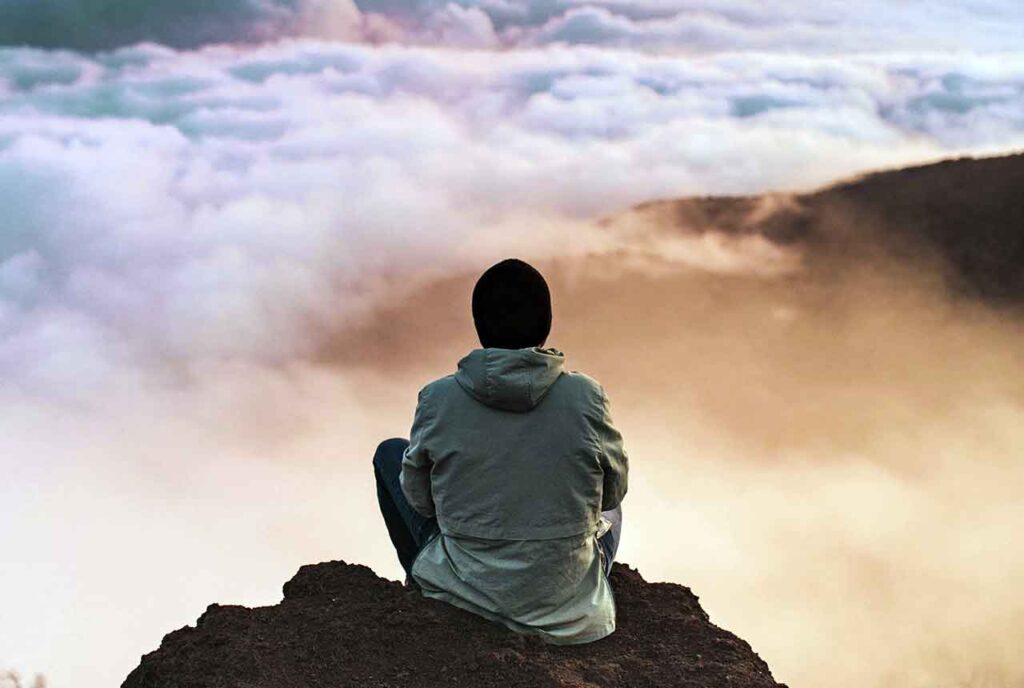Good afternoon (ad)venturous, kind people. Today, I’m going to share my view and experience from what I understand as being a mindful traveller. Of course, is a subject which can raise a lot of controversial ideas, opinions, but I believe that we can make a difference if we are becoming more aware of how and when we can impact our surroundings.
Table of Contents
What Is A Mindful Traveller?
Being a responsible/mindful traveller means going by on your journey with respect, awareness, and consideration for the environment and local communities. Mindful travel is about making the best choices to ensure we’re respectful and kind to each other and the surroundings, either that means the environment or the people.
To become a more ethical and self-aware traveller, knowledge, research, and awareness are essential.
Anyone who travels often has probably made mistakes they later regret, and I’m no exception. It’s not always easy to make the right choice. Our travel experiences won’t always be flawless, but we can strive to be the best travellers we can be.
These simple steps serve as a reminder of how we can be more responsible and considerate in our future adventures.

Be Considerate When Comes To Travel Options
Being a responsible traveller isn’t just about ethical choices; it also has a substantial impact on reducing our carbon footprint. Here are some interesting statistics that shed light on how our travel decisions can positively influence the environment:
- Choose Trains Over Planes: Opting for train travel over air travel for medium-distance trips can reduce your carbon footprint significantly. Trains produce approximately 10-20% of the emissions per passenger mile compared to domestic flights.
- Sustainable Accommodations: Staying in eco-friendly or sustainable accommodations not only supports local businesses but also reduces your carbon footprint. Green hotels, lodges, and resorts can be 25-30% more energy-efficient than traditional options.
- Walking and Biking: Exploring your destination on foot or by bicycle is not only a great way to immerse yourself in the local culture but also a zero-emission mode of transportation.
- Public Transport: In many cities, public transportation systems are not only convenient but also environmentally friendly. Buses and subways produce fewer emissions per passenger than individual car trips.
- Carpooling and Ridesharing: When renting a car or using ridesharing services, consider sharing your ride with others. Carpooling can reduce the number of vehicles on the road and, consequently, emissions.
- Support Local and Sustainable Tourism: Choosing tour operators and activities that focus on sustainable and responsible tourism can have a significant impact. These businesses often work to minimize their ecological footprint.
- Reducing Air Travel: While it’s not always possible, reducing the number of flights you take each year can have a substantial impact. One long-haul flight can produce more carbon emissions than an entire year’s worth of driving.
- Carbon Offsetting: Consider investing in carbon offset programs that help mitigate the emissions from your travel. This can include reforestation projects, renewable energy initiatives, or support for cleaner cooking technologies in developing countries.
By making mindful decisions, we can enjoy our journeys while protecting the environment for future generations. Of course, keep in mind that these are suggestions and any small step will add up. By no means, keep your travel fun and inspiring.
Be Mindful By Packing Light
Many of us tend to believe we can’t travel without a stuffed suitcase unless we change our habits. To make wiser packing choices, bring only what you truly need and leave behind those “just in case” items. Avoid purchasing things specifically for your travels; you usually don’t require them.
Pack in a relaxed, straightforward, and lightweight manner. Whenever possible, aim for carrying only hand luggage, as it’s often more affordable (airlines frequently charge for checked bags) and makes your travel faster and simpler.
I’ve realised this when I’ve travelled to USA on a summer exchange work experience. I’ve left my home with just a backpack and that pretty much hold me through the entire summer. All necessary clothes and shoes fitted perfectly within my camping backpack.
Since then, I’m trying to travel as light as possible every time I can. Of course, now with kids is a little bit more difficult to cut down the number of luggage’s, but is a continuous struggle when comes to packing. What to take and what not to take. If is really necessary or it will just end up sitting in the massive luggage without actually getting used.
Leave Only Footprints And Be Compassionate
It’s common sense that when we travel, we should only leave footprints and nothing else. Regrettably, the environment is suffering from the impacts of mass tourism, and a significant part of this is due to littering.
When you’re on a trip, please tidy up after yourself and even after others. Opt for smaller groups for your visits and plan your outings to avoid peak times. When exploring, avoid touching cultural or historical sites and artifacts, and make sure to leave nature untouched as you found it.
If you encounter wildlife, admire them from a distance. Don’t follow, approach, touch, or feed them, as this can harm them, change their natural behaviour, and put them in danger.
To minimize waste, bring eco-friendly items with you. Consider using, if available, reusable water bottle, lunch containers, and basic utensils to reduce your reliance on disposable items. If you have to buy food, repackage it to reduce waste and make sure to recycle responsibly.
Depending where and for what you go, some attractions or holidays will involve animals, either are zoos, riding elephants, watching bullfighting and more. Of course, some of these activities are considered part of the local culture, but please keep in mind that sometimes these animals are treated, let’s say “less then well”.
So, think twice before you are experiencing any of these attractions or if you are looking at buying souvenirs which may involve animal products, such as ivory, fur, tortoise shell, etc. I know is quite difficult to find a balance and to be always self aware of the downside of our choices.
However, finding a balance between supporting local communities (which sometimes their living is based on tourism exclusively and may involve animals) and harming our surroundings should be at least our goal.
If you can do your own research and find ethical alternatives or attractions which are exploiting the local fauna then everyone wins. It’s not right when wild animals are used to make money from tourists and by continuing to support those activities will encourage it even more.
The only way, sometimes, to make a difference is through our choices, in particular small ones.
Last But Not Least, Give Back
Probably this one last aspect is one that can help the most. Please leave reviews and give feedback. After your trip, consider what you’ve experienced; the places you’ve visited, who you met, what you did, and how you felt about it all.
The reviews you write for local businesses and guides can help other travellers make better decisions with their travel plans. Providing feedback, both positive and constructive, helps others to avoid pitfalls or mistakes, and choose better, more ethical options when it comes to picking where to stay, what to do, and the trips they take.
You can also give back by supporting the people, organisations, or charities you travelled with by promoting them online, recommending them to friends and family, and donating to their cause. Giving back in this way means we encourage others to become more ethical, more responsible, and more compassionate travellers.



